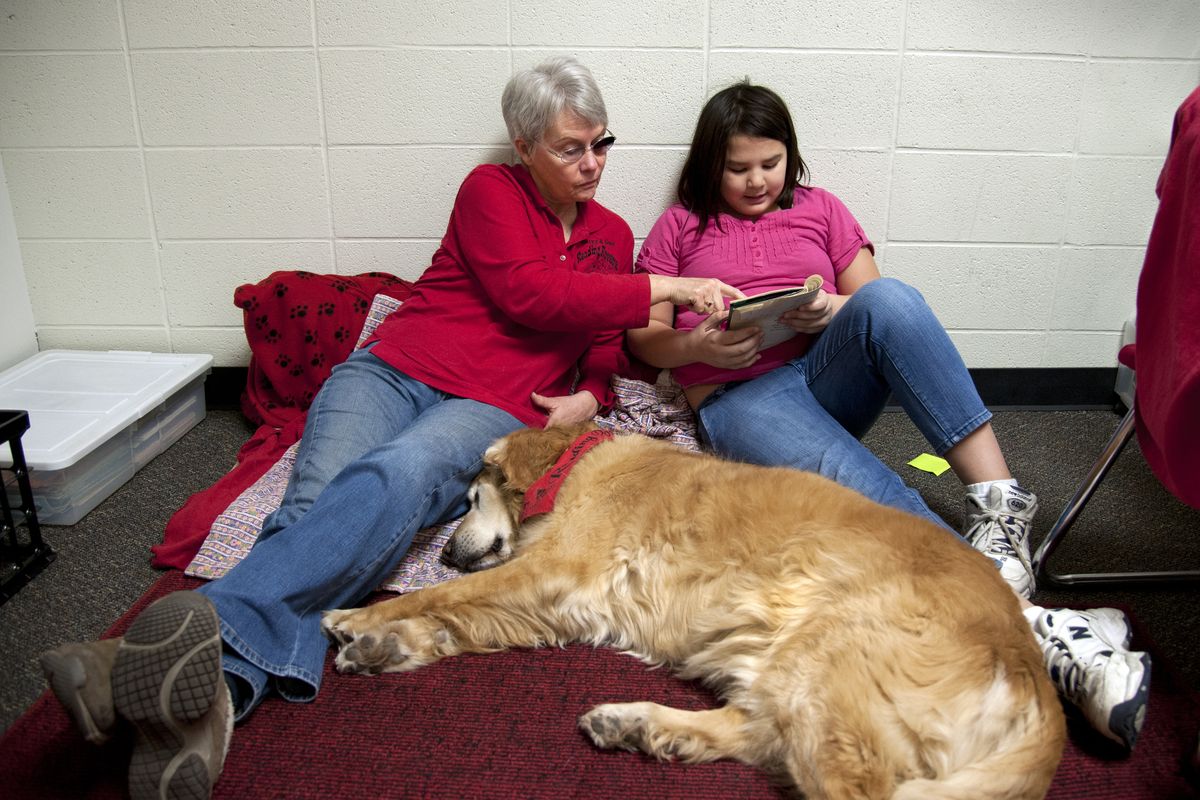Teach the children well: Community partners help schools give students a fuller education

Educators who realize focusing solely on academics is not enough are finding ways for children’s social and emotional needs to be addressed in school.
“We can’t do it by ourselves; they need more,” said Fred Schrumpf, Spokane Public Schools’ director of graduation improvement.
Community partnerships play a key role. A five-year study released this week shows mentoring programs are improving the dropout rate, decreasing behavioral issues and reducing symptoms of depression.
The Spokane district has at least 40 official partnerships with local organizations, but a closer look at the district’s elementary schools reveals there are far more: Local churches, Rotary groups, neighborhood organizations, small nonprofits and individuals are also reaching out to schools.
Roosevelt Elementary School on the lower South Hill is just one school where the principal has encouraged and welcomed multiple community partners – including members of First Presbyterian Church, South Hill Rotary, Master Gardeners, Catholic Charities of Spokane and Communities in Schools – to engage students on a variety of levels to help meet academic and non-academic needs.
“It’s sometimes harder for schools in lower-income areas to find partnerships,” said Principal Matt Henshaw. “The work (with kids) is too complex and multifaceted, and we couldn’t do it without partnerships.”
Roosevelt students took over the Northwest Museum of Arts and Culture on Thursday night to learn about clay making and animation, experiment with stringed instruments and listen to authors. A grant-funded partnership between the museum and the school came through a program called Visual Thinking Strategies, which fosters an appreciation of the arts and encourages critical thinking.
“My favorite part was the clay, because I made a sea serpent,” said Evander Volavka, 6. His sister, Leena, enjoyed the animation.
“The kids have a limited exposure to the arts right now because of the loss of art teachers over the years, so any time the kids have exposure to the arts, it’s a great thing,” said Spokane City Councilman Jon Snyder, who was volunteering at the event. “Art shouldn’t be like varsity football; everybody should be exposed to it.”
On most days at Roosevelt, a volunteer with a dog can be found in the school as part of the Reading Rovers program. Students who are reluctant readers find it easier to read to canines, school officials say.
“I like to read with Harry because he’s fun to read with, and he’s a good listener and it helps me to improve my reading,” said Liberty Phan, a fifth-grader who was reading to a golden retriever brought by volunteer Sue Ferney.
Soon a garden club is expected to kick into gear at the school courtesy of a partnership between Roosevelt and the Master Gardeners of Spokane.
Communities in Schools is one of a few nonprofits that help tutor students.
More than a third of students at Roosevelt, where more than 63 percent of the students receive free or reduced-price meals, work with mentors on a regular basis. The mentors come from a variety of organizations, including Gonzaga’s Campus Kids, Goodwill Mentoring Afterschool Program for Success, Watch Dogs – dads who volunteer – and First Presbyterian Church.
“These consistent people are taking part in the kids’ lives and help them build relationships,” said Melissa Alfstad, a counselor at Roosevelt.
Schrumpf, a district administrator who has been working to build school-community partnerships districtwide, said, “Help goes beyond academic, if you are going to look at the whole child you certainly have to look at more than the academic part of the child.”
The district’s Early Warning System, which identifies students who are missing school, misbehaving or failing courses, is helping district officials identify intervention needs for children and connect kids with the right services, he said.
“The dropout rate used to be seen as a school issue, but we see it as much more than that,” Schrumpf said. “It’s a community issue, and they know if the kids are successful in school then they will be successful out of school.”
Roosevelt Elementary School is not the only school where several community partners are engaged in helping kids. Other partners in the district include Boys & Girls Clubs, Big Brothers Big Sisters, United Way, Spokane County Juvenile Detention Center and Priority Spokane.
“I could just reel them off. There’s a whole laundry list,” said Holmes Elementary School Principal Steve Barnes. “I think it’s critical to our mission of educating our children. As funds and resources become tighter in education it’s challenging to do the extra programs, and incentives and rewards for kids – we have more and more families that are struggling to make ends meet – it’s helpful.”
He added, “We have people that help with school supplies and backpacks and books and boots and coats and underwear and food … we have grandmas who bring knitted hats. It takes a whole village to raise a child and we’ve been very grateful to have so many business partners and sponsors that want to help out.”